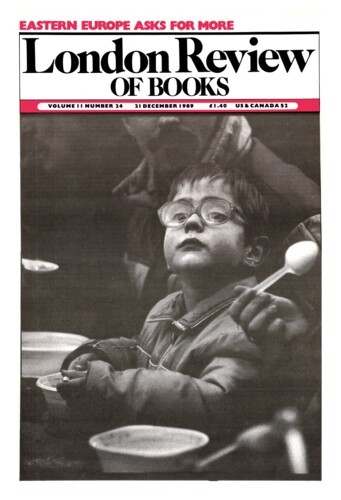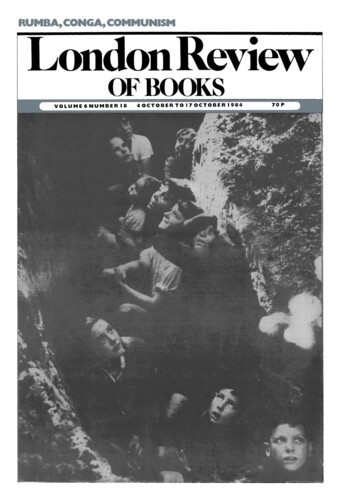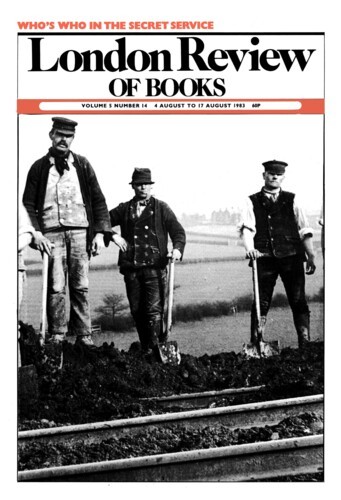Frank Honigsbaum
Frank Honigsbaum The Division in British Medicine was published in 1979.
Whistle-Blowers
Frank Honigsbaum, 4 October 1984
The pharmaceutical industry arouses conflicting emotions. Anti-vivisectionists, fringe medical practitioners and food faddists all tend to hate it, while the rest of us are periodically alarmed by the drug disasters that occur and the extent of drug-induced disease. The commercial practices of the industry also provoke concern: complaints arise continuously about price-gouging, market-rigging, profiteering, tax avoidance, misleading advertising claims and a whole host of unsavoury promotional techniques. Against these charges must be set the immense benefits wrought by the succession of wonder drugs that have appeared since prontosil (the forerunner of penicillin) ushered in the antibiotic revolution in 1935. The world would be a sicker and more dangerous place if the industry did not exist. Life expectancy would everywhere be shorter and far more people would be in pain. There is no doubt that on balance drug firms do more good – indeed, far more good – than harm. It is important to keep this in mind when considering these four books, all of which show the industry in dire need of reform.
How to save the Health Service
Frank Honigsbaum, 4 August 1983
For three decades following its creation in 1948, the National Health Service enjoyed a popularity unrivalled in British politics. It was called the envy of the world and ministers in successive governments vied to see who could do more to improve it. Now its survival can no longer be taken for granted. During the Seventies, the consensus which sustained it began to break down and it may weaken further in the years ahead. If it does fall apart, the public may lose its unfettered right to medical care: financial obstacles could become as common here as they are in America. Private hospitals and other forms of ‘creeping capitalism’ have already spread over the health map of Britain, and the right to free care within the state sector may end up being confined to the chronic sick and others who find it too difficult to bear the cost of private medicine.
Pieces about Frank Honigsbaum in the LRB
Making and Breaking
Rosalind Mitchison, 21 December 1989
Nobody could call Frank Honigsbaum’s book ‘user friendly’. Some reasons for its indigestibility are inherent in the topic: the moves, some effective, most frustrated, by civil...
Read anywhere with the London Review of Books app, available now from the App Store for Apple devices, Google Play for Android devices and Amazon for your Kindle Fire.
Sign up to our newsletter
For highlights from the latest issue, our archive and the blog, as well as news, events and exclusive promotions.



